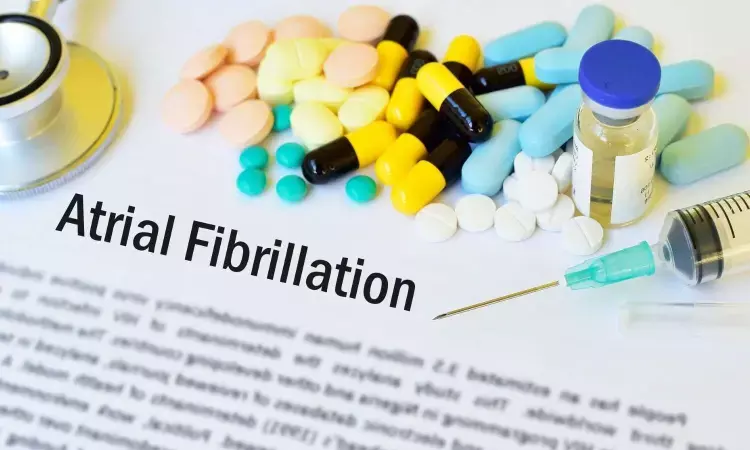- Home
- Medical news & Guidelines
- Anesthesiology
- Cardiology and CTVS
- Critical Care
- Dentistry
- Dermatology
- Diabetes and Endocrinology
- ENT
- Gastroenterology
- Medicine
- Nephrology
- Neurology
- Obstretics-Gynaecology
- Oncology
- Ophthalmology
- Orthopaedics
- Pediatrics-Neonatology
- Psychiatry
- Pulmonology
- Radiology
- Surgery
- Urology
- Laboratory Medicine
- Diet
- Nursing
- Paramedical
- Physiotherapy
- Health news
- Fact Check
- Bone Health Fact Check
- Brain Health Fact Check
- Cancer Related Fact Check
- Child Care Fact Check
- Dental and oral health fact check
- Diabetes and metabolic health fact check
- Diet and Nutrition Fact Check
- Eye and ENT Care Fact Check
- Fitness fact check
- Gut health fact check
- Heart health fact check
- Kidney health fact check
- Medical education fact check
- Men's health fact check
- Respiratory fact check
- Skin and hair care fact check
- Vaccine and Immunization fact check
- Women's health fact check
- AYUSH
- State News
- Andaman and Nicobar Islands
- Andhra Pradesh
- Arunachal Pradesh
- Assam
- Bihar
- Chandigarh
- Chattisgarh
- Dadra and Nagar Haveli
- Daman and Diu
- Delhi
- Goa
- Gujarat
- Haryana
- Himachal Pradesh
- Jammu & Kashmir
- Jharkhand
- Karnataka
- Kerala
- Ladakh
- Lakshadweep
- Madhya Pradesh
- Maharashtra
- Manipur
- Meghalaya
- Mizoram
- Nagaland
- Odisha
- Puducherry
- Punjab
- Rajasthan
- Sikkim
- Tamil Nadu
- Telangana
- Tripura
- Uttar Pradesh
- Uttrakhand
- West Bengal
- Medical Education
- Industry
Severe obesity among adolescent males strongly linked to early atrial fibrillation: JAHA

Sweden: A recent study has revealed a strong association between increasing body mass index (BMI) in adolescent men with the development of early atrial fibrillation (AF) or an irregular heart rate. Also, it was linked with subsequent worse clinical outcomes after diagnosis of atrial fibrillation. The study appears in the Journal of the American Heart Association.
The study included 1,704,467 young men (average age of 18.3 years) enrolled in compulsory military service in Sweden from 1969 through 2005. During a median follow-up of 32 years, 36,693 cases of atrial fibrillation were recorded, at an average age of 52.4 years at diagnosis. Compared with men with a baseline BMI of 18.5–<20.0 kg/m2, men with a BMI of 20.0–<22.5 kg/ m2 had a 1.06-times higher risk of developing atrial fibrillation and those with a BMI of 40.0–50.0 kg/ m2 had a 3.72-times higher risk.
In men diagnosed with atrial fibrillation who were followed for a median of approximately 6 years, investigators identified 3,767 deaths, 3,251 cases of heart failure, and 921 cases of ischemic stroke. Compared with those with a baseline BMI of <20 kg/ m2, those with a baseline BMI of >30 kg/ m2 had 2.86-times, 3.42-times, and 2.34-times higher risks of these outcomes, respectively.
Key findings:
- The multivariable‐adjusted hazard ratio (HR) for AF increased from 1.06 in individuals with body mass index (BMI) of 20.0 to <22.5 kg/m2 to 3.72 among men with BMI of 40.0 to 50.0 kg/m2, compared with those with BMI of 18.5 to <20.0 kg/m2.
- During a median follow‐up of ≈6 years in patients diagnosed with AF, the researchers identified 3767 deaths, 3251 cases of incident heart failure, and 921 cases of ischemic stroke.
- The multivariable‐adjusted HRs for all‐cause mortality, incident heart failure, and ischemic stroke in AF‐diagnosed men with baseline BMI >30 kg/m2 compared with those with BMI <20 kg/m2 were 2.86, 3.42, and 2.34, respectively.
"Whether screening for atrial fibrillation in early adulthood among individuals with long-standing obesity and more robust follow-up and initiation of anticoagulants in people with long-standing obesity and atrial fibrillation may improve survival needs to be addressed in future randomized trials," said corresponding author Demir Djekic, MD, PhD, of Sahlgrenska University Hospital/Östra, in Sweden.
Reference:
Demir Djekic, Martin Lindgren, N. David Åberg, Maria Åberg, Espen Fengsrud, Dritan Poci, Martin Adiels and Annika Rosengren Originally published19 Oct 2022https://doi.org/10.1161/JAHA.121.025984 Journal of the American Heart Association. 2022;0:e025984
Dr Kamal Kant Kohli-MBBS, DTCD- a chest specialist with more than 30 years of practice and a flair for writing clinical articles, Dr Kamal Kant Kohli joined Medical Dialogues as a Chief Editor of Medical News. Besides writing articles, as an editor, he proofreads and verifies all the medical content published on Medical Dialogues including those coming from journals, studies,medical conferences,guidelines etc. Email: drkohli@medicaldialogues.in. Contact no. 011-43720751


